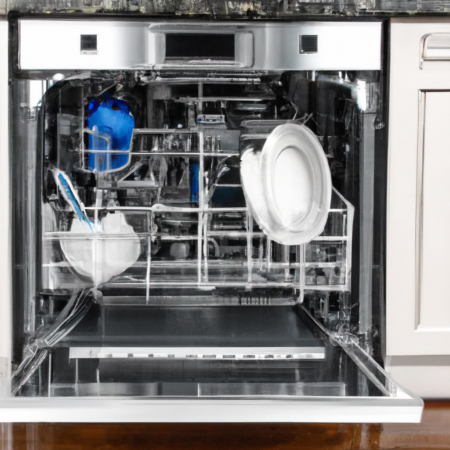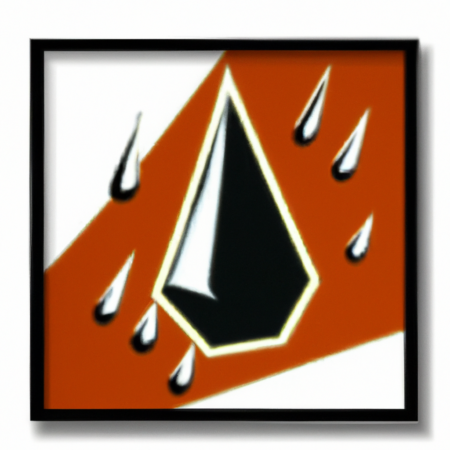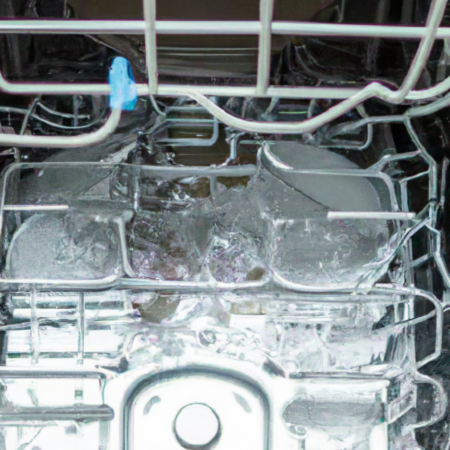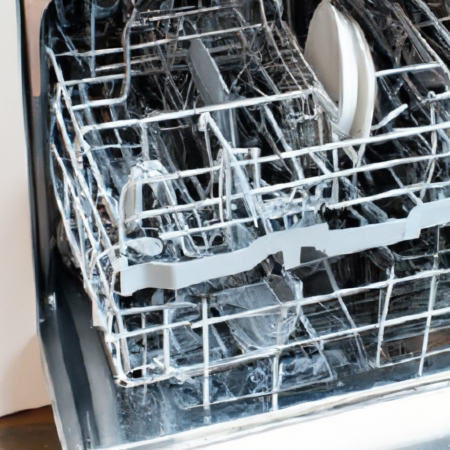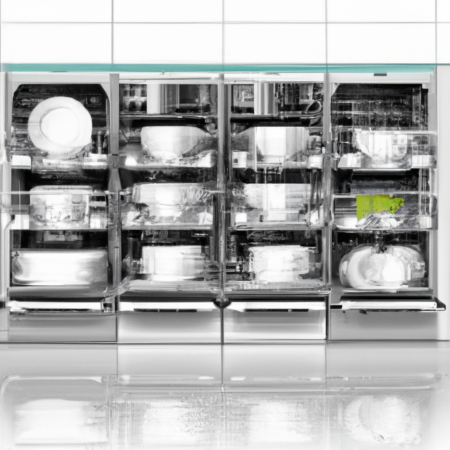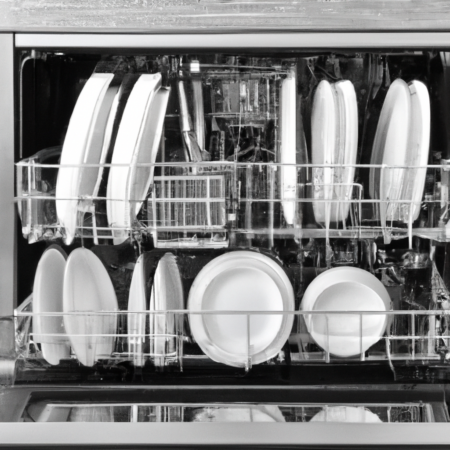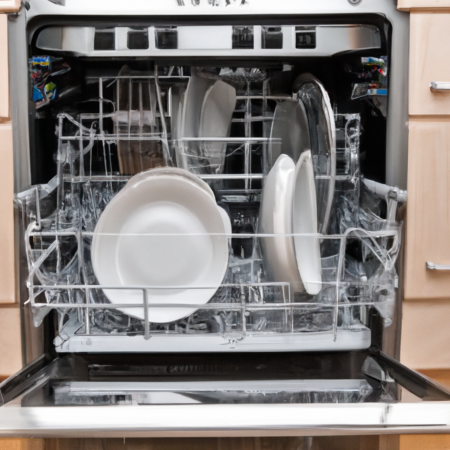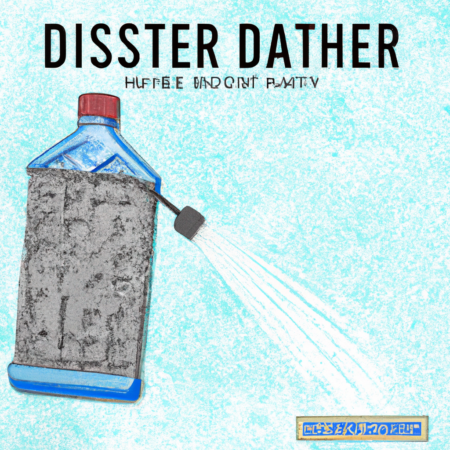We're an affiliate
We hope you love the products we recommend! Just so you know, we may collect a share of sales or other compensation from the links on this page. Thank you if you use our links, we really appreciate it!
Are you tired of dealing with stubborn hard water stains on your dishes? Look no further, because we have the perfect solution for you: a homemade dishwasher cleaner specifically designed to tackle hard water residue. Hard water can leave behind mineral deposits on your dishes, glasses, and silverware, but with this simple and inexpensive cleaner, you can say goodbye to those pesky stains. With just a few household ingredients, you can create a powerful cleaner that will leave your dishwasher sparkling clean and your dishes looking as good as new. Say goodbye to the frustration of hard water stains and say hello to a cleaner, more efficient dishwasher with this homemade solution.
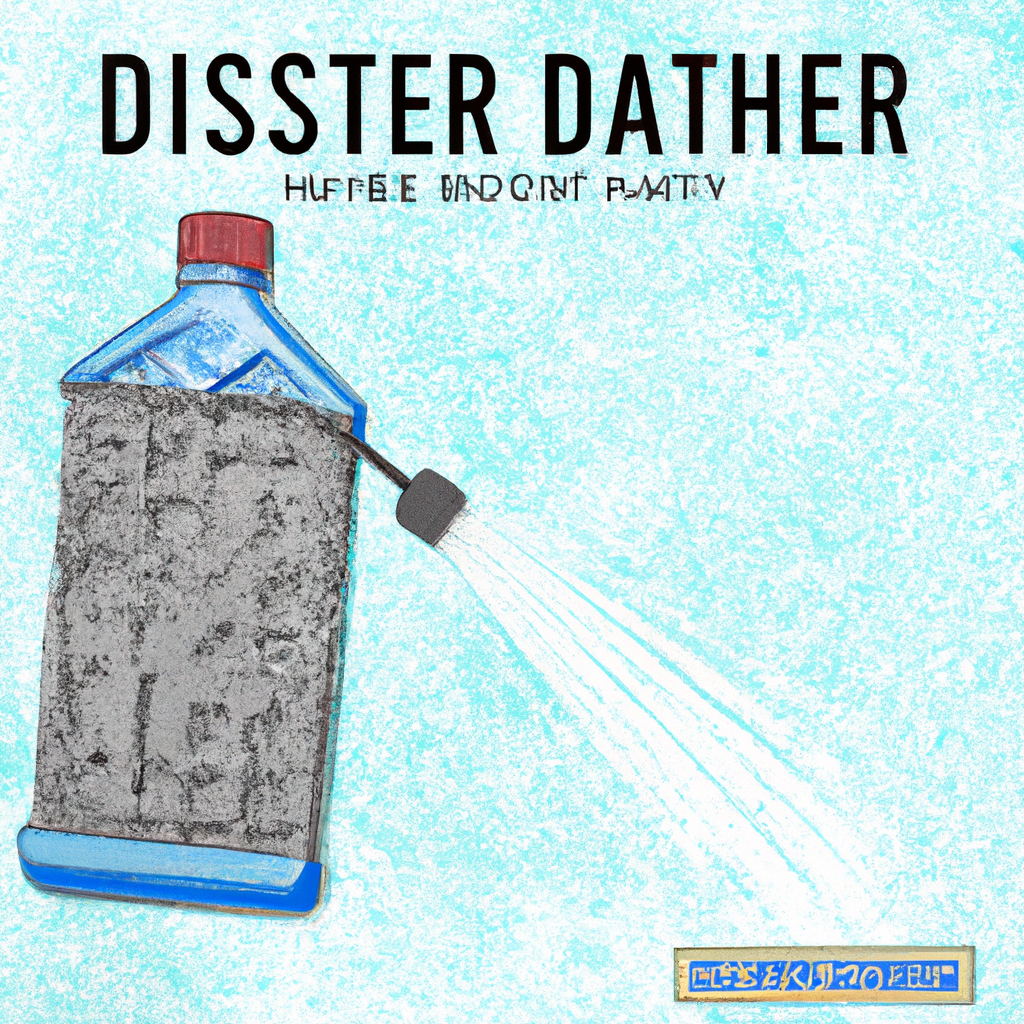
Understanding Hard Water
What is hard water
Hard water refers to water that has a high mineral content, particularly calcium and magnesium. These minerals are picked up as the water passes through rocks and soil, and they can have various effects on our daily lives. While consuming hard water has little adverse effect on our health, it can cause a number of issues when it comes to household appliances like dishwashers.
Effects of hard water on dishwashers
When hard water is used in dishwashers, the minerals in the water can build up over time and create a layer of scale or residue. This can affect the performance and efficiency of your dishwasher in several ways. Firstly, the scale can clog the dishwasher’s spray arms and jets, resulting in poor water circulation and ineffective cleaning. Additionally, the minerals can leave behind spots and streaks on your dishes, making them appear dirty even after a wash cycle. Over time, the build-up can also shorten the lifespan of your dishwasher and lead to costly repairs or replacements.
Signs your dishwasher has hard water build-up
It’s important to be able to recognize the signs of hard water build-up in your dishwasher so that you can take appropriate action. One of the most noticeable signs is the presence of white or chalky residue on the interiors of your dishwasher. You may also notice spots or film on your glassware and dishes, even when you use detergent. If you find that your dishes are not getting as clean as they used to or are coming out looking dull, it could be a sign of hard water build-up. Lastly, if you are experiencing frequent malfunctions or decreased efficiency with your dishwasher, it may be due to the effects of hard water. If you notice any of these signs, it’s time to consider using a homemade dishwasher cleaner specifically formulated for hard water.
Benefits of Using Homemade Dishwasher Cleaner
Cost-effectiveness
One of the major benefits of using a homemade dishwasher cleaner for hard water is the cost-effectiveness. Commercial dishwasher cleaners can be quite expensive, especially if you have to use them frequently to combat hard water issues. On the other hand, homemade dishwasher cleaners can be made using simple and affordable ingredients that are readily available in most households. This allows you to save money while still effectively cleaning your dishwasher.
Safer Ingredients
Another advantage of using a homemade dishwasher cleaner is the ability to control the ingredients used. Many commercial dishwasher cleaners contain harsh chemicals that can be harmful to both your health and the environment. By making your own cleaner, you have the option to choose safer and more natural ingredients. This is especially important if you have children or pets in your home who may come into contact with the dishwasher or its cleaned items.
Environment friendly
Using homemade dishwasher cleaner is also an environmentally friendly choice. By avoiding the use of commercial cleaners that often come in non-recyclable plastic containers, you reduce your contribution to landfill waste. Additionally, homemade cleaners are typically made with biodegradable ingredients, which are less harmful to aquatic life when they eventually make their way into the water system.
Easy to make
Making your own dishwasher cleaner is surprisingly easy. With just a few common household ingredients, you can create an effective cleaner that will tackle the hard water build-up in your dishwasher. The process usually involves combining ingredients like vinegar, baking soda, essential oils, and citric acid. We’ll provide a step-by-step guide later in this article to help you make your own homemade dishwasher cleaner with vinegar and baking soda.
Ingredients Needed for Homemade Dishwasher Cleaner
To make your own homemade dishwasher cleaner for hard water, you’ll need the following ingredients:
White vinegar
Vinegar is a versatile ingredient that is commonly used in homemade cleaning products. Its acidic nature helps to break down mineral deposits and remove stains and residue. White vinegar is recommended over other types of vinegar, such as apple cider vinegar or balsamic vinegar, as it is clear and less likely to leave behind any stains or odors.
Baking soda
Baking soda, also known as sodium bicarbonate, is another key ingredient in homemade dishwasher cleaners. It acts as a gentle abrasive that helps to scrub away stains and residue. Baking soda also has deodorizing properties, which can help eliminate any lingering odors in your dishwasher.
Essential oils
Essential oils are optional but can be added to your homemade dishwasher cleaner to provide a pleasant scent. Some popular choices include lemon, lavender, or tea tree essential oils. Make sure to choose high-quality essential oils that are safe for use in cleaning products.
Citric acid
Citric acid is a powerful ingredient for tackling hard water build-up. It helps to dissolve mineral deposits and remove stains. You can find citric acid in the canning or baking aisle of your local grocery store or online. Make sure to follow the correct measurements when using citric acid, as using too much can cause damage to your dishwasher.
Step-by-Step Guide to Making Dishwasher Cleaner with Vinegar and Baking Soda
Now that you have gathered the necessary ingredients, let’s walk through the process of making your own homemade dishwasher cleaner with vinegar and baking soda.
Determine the quantity needed
The first step is to determine the quantity of cleaner needed based on the size of your dishwasher. A general rule of thumb is to use around half a cup of vinegar and half a cup of baking soda for a standard-sized dishwasher. Adjust the quantities accordingly if you have a smaller or larger dishwasher.
Mixing vinegar and baking soda
In a small bowl or container, mix together equal parts vinegar and baking soda. As you combine the two ingredients, you will notice a chemical reaction, resulting in a foaming mixture. This foaming action helps to loosen and remove the stubborn mineral deposits in your dishwasher. Allow the mixture to sit for a few minutes until the foaming subsides.
Adding essential oils
If you prefer a scented cleaner, this is the time to add a few drops of your chosen essential oil to the mixture. Stir well to distribute the scent evenly. Keep in mind that the essential oil is optional and can be omitted if you prefer an unscented cleaner.
Using the cleaner in your dishwasher
Once the cleaner is prepared, it’s time to put it to use in your dishwasher. Start by removing any items from the dishwasher and clearing out any food debris or residue. With a damp cloth or sponge, apply the homemade cleaner to the interior surfaces of the dishwasher, paying extra attention to areas with visible hard water build-up. Scrub gently to dislodge and remove the scale. Afterward, run a regular wash cycle with hot water to thoroughly rinse the dishwasher. You should notice a significant improvement in the cleanliness and performance of your dishwasher after using this homemade cleaner.
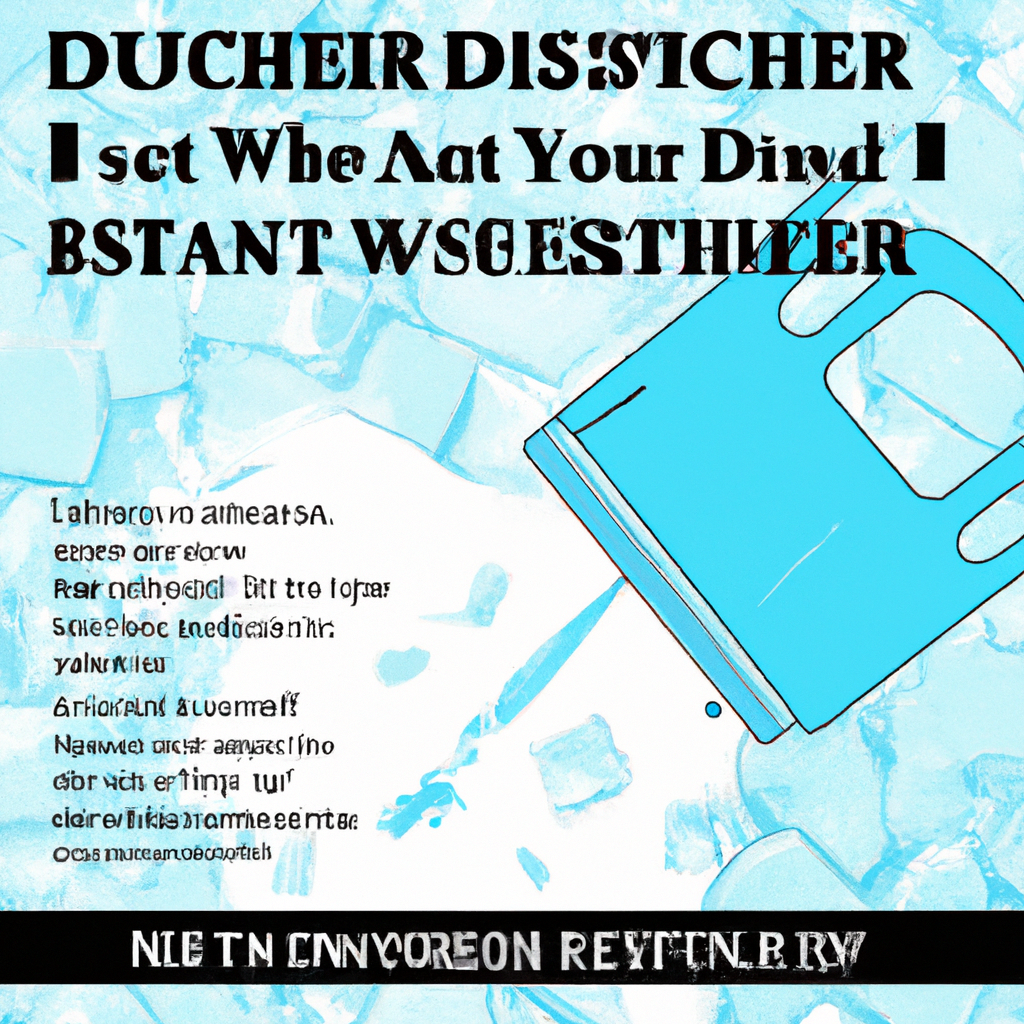
Citric Acid as an Effective Cleaner
Benefits of citric acid
Citric acid is a natural cleaning agent that is highly effective against hard water stains and build-up. It is a weak organic acid that is found in citrus fruits like lemons and oranges. Its acidic properties make it an excellent choice for breaking down mineral deposits and removing stains.
Procedures to clean dishwasher with citric acid
To clean your dishwasher with citric acid, start by emptying the dishwasher and removing any large food particles or debris. Then, sprinkle about half a cup of citric acid powder evenly across the bottom of the dishwasher. You can adjust the quantity based on the severity of the hard water build-up. Next, run a hot water cycle with the citric acid sitting in the dishwasher. This will allow the citric acid to dissolve and interact with the mineral deposits, loosening and removing them. Once the cycle is complete, you can wipe away any remaining residue with a cloth or sponge. Your dishwasher should now be free from hard water stains and build-up.
Precautions on using citric acid
While citric acid is generally safe to use, there are a few precautions to keep in mind. Avoid using citric acid on delicate, non-acid-resistant surfaces, such as marble or aluminum, as it can cause damage. Additionally, be cautious when handling and storing citric acid, as it is an acidic substance. Always follow the instructions on the packaging and keep it out of reach of children and pets.
Safety Precautions When Making and Using Homemade Cleaners
When making and using homemade cleaners, it’s important to follow some safety precautions to ensure your well-being and the effectiveness of the cleaner.
Handling the ingredients
Some ingredients, such as citric acid, can be irritating to the skin or eyes. It is recommended to wear gloves and goggles when handling citric acid or any other potentially irritating ingredient. If any contact occurs, rinse the affected area with water.
Storing the cleaner
Store homemade dishwasher cleaner in a properly labeled container, away from the reach of children and pets. Ensure that the container is tightly sealed to prevent leaks or spills. For safety purposes, store the cleaner in a cool and dry place.
Application on the dishwasher
When applying the homemade cleaner to your dishwasher, make sure to follow the instructions mentioned earlier. Avoid contact with your skin or eyes and ensure proper ventilation in the area. If there is accidental contact or inhalation, seek medical attention if necessary.
Health precautions
If you have any known allergies or health conditions, it is best to consult with a healthcare professional before using homemade cleaners. Some individuals may have specific sensitivities or reactions to certain ingredients, and it’s important to take these into consideration for your safety.
Cleaning Frequency and Maintenance Tips for Dishwashers
Determining cleaning frequency
The frequency at which you should clean your dishwasher depends on several factors. If you have particularly hard water or notice significant mineral build-up, you may need to clean your dishwasher more frequently. As a general guide, it’s recommended to deep clean your dishwasher with a homemade cleaner every 1-3 months. However, regular maintenance practices can help prevent excessive build-up and prolong the time between deep cleanings.
Regular maintenance practices
In addition to deep cleaning, there are several regular maintenance practices you can implement to keep your dishwasher running smoothly. Start by scraping off large food particles from dishes before loading them into the dishwasher. This helps prevent clogs and reduces the chance of residue build-up. It’s also important to regularly check and clean the dishwasher filter and drain to ensure they are free from debris. Running an empty dishwasher with a cup of vinegar on the top rack can help remove any lingering odors and freshen up the interior.
Tips to improve dishwasher’s efficiency
To improve the efficiency of your dishwasher and minimize the effects of hard water, consider the following tips:
- Use a rinse aid specifically formulated for hard water to prevent spots and streaks on your dishes.
- Avoid overcrowding the dishwasher, as this can hinder proper water circulation and cleaning.
- Use the appropriate amount of dishwasher detergent. Too little detergent may result in inadequate cleaning, while too much can contribute to a build-up of residue.
- Regularly check and adjust the dishwasher’s water hardness settings. This ensures that the dishwasher is optimized to handle the specific hardness of your water.
Dealing with persistent hard water stains
If you have persistent hard water stains or build-up that cannot be resolved with homemade cleaners, it may be necessary to seek professional help. Consider contacting a plumbing or appliance repair service to assess and address the issue. They may recommend the use of specialized descaling products or other solutions tailored to your specific situation.
Troubleshooting Common Dishwasher Issues Related to Hard Water
Cloudy dishes
Cloudy dishes are a common issue caused by hard water. This occurs when mineral deposits are left behind on the surfaces of the dishes during the wash cycle. To remedy this problem, try using a rinse aid designed for hard water or add a tablespoon of citric acid to the dishwasher’s rinse aid dispenser. These additives can help prevent the formation of cloudy residue and leave your dishes sparkling clean.
Ineffectiveness of detergent
If you find that your detergent is not working as effectively as it should, hard water may be the culprit. The minerals in hard water can reduce the effectiveness of detergent, making it difficult to achieve a thorough clean. In this case, consider using a dishwasher detergent specifically formulated for hard water. These detergents contain additional cleaning agents that are designed to combat the effects of hard water and provide better cleaning results.
Damage to dishwasher
Over time, the build-up of mineral deposits from hard water can cause damage to your dishwasher. It can clog the spray arms, drain, and pipes, leading to reduced water flow and performance. Additionally, the scale can accumulate on heating elements and other internal components, causing them to work less efficiently and potentially shortening their lifespan. By regularly using homemade dishwasher cleaners for hard water, you can help prevent this damage and extend the life of your dishwasher.
Alternative Homemade Dishwasher Cleaners
While the vinegar and baking soda solution is a popular and effective homemade cleaner for hard water, there are other alternatives you can try. These alternatives feature different ingredients that also have cleaning properties.
Using lemon juice
Lemon juice, due to its high citric acid content, can be used as a substitute or addition to the vinegar in your dishwasher cleaner recipe. The acidic nature of lemon juice helps break down hard water deposits and leaves a fresh citrus scent behind. Simply substitute equal parts lemon juice for vinegar in your homemade dishwasher cleaner or combine the two for a more powerful cleaning solution.
Borax and Baking Soda Mix
Borax and baking soda can also be combined to create a homemade dishwasher cleaner for hard water. Borax, a naturally occurring mineral, has excellent cleaning properties and helps to remove stubborn stains and residue. To make a borax and baking soda mix, combine equal parts borax and baking soda in a container. Use this mixture as you would the vinegar and baking soda solution, applying it to the interior surfaces of your dishwasher and running a hot water cycle.
Salt and Vinegar Mix
Another alternative cleaner for hard water is a mixture of salt and vinegar. The coarse texture of salt acts as a gentle scrubbing agent, while vinegar helps to dissolve mineral deposits. To make this homemade cleaner, mix equal parts salt and vinegar in a small bowl. Apply the mixture to the surfaces of your dishwasher and allow it to sit for a few minutes before rinsing with hot water.
Final Thoughts on Homemade Dishwasher Cleaners for Hard Water
In conclusion, using homemade dishwasher cleaners specifically tailored for hard water is a cost-effective, safe, and environmentally friendly way to keep your dishwasher clean and running efficiently. The key ingredients, such as vinegar, baking soda, essential oils, and citric acid, work together to break down mineral deposits and remove stains, leaving your dishwasher and dishes sparkling clean. By following the step-by-step guide and implementing regular maintenance practices, you can prevent the adverse effects of hard water on your dishwasher and enjoy a hassle-free dishwashing experience. Remember to choose the homemade cleaner that best suits your needs and preferences and strike a balance between commercial and homemade solutions to maintain the optimal performance of your dishwasher.


